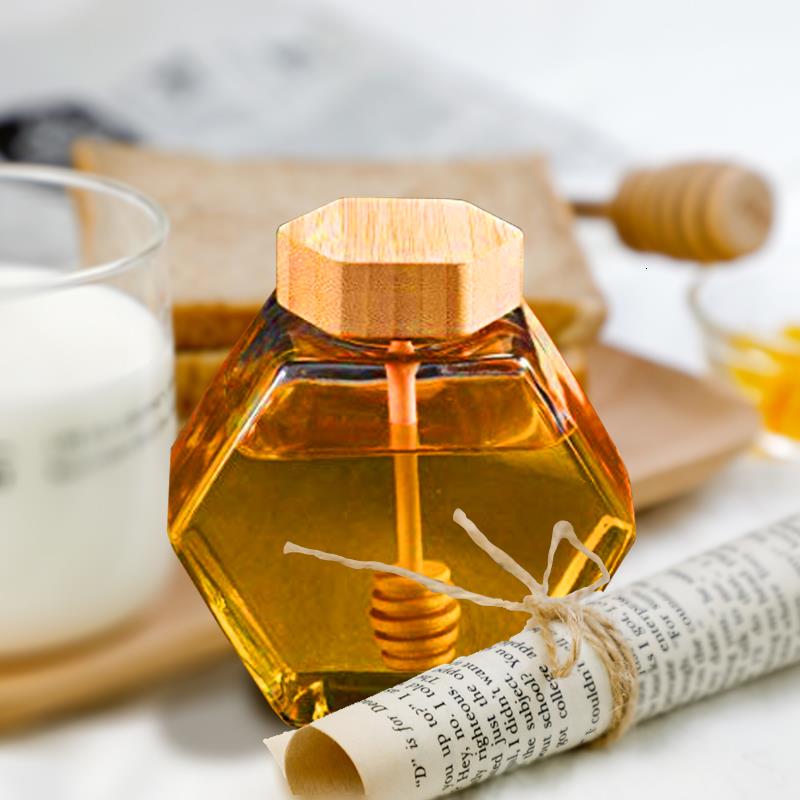Honey Storage Solutions: Answers to 10 Common Inquiries About Honey Jars
Honey Storage Solutions: Answers to 10 Common Inquiries About Honey Jars
Due to its adaptability, health benefits, and widespread popularity, honey has established itself as an essential food product in nearly every household globally. As a result, it is crucial to pay careful attention when storing or preserving honey in large or small jam jars and bottles with lids, as this can affect its longevity. This article aims to address various inquiries regarding containers for honey, providing guidance on how to choose the right jars and store your honey effectively—whether for personal use or commercial purposes.

Frequently Asked Questions About Jars for Honey
1. What are the Best Containers/ Jars for Honey?
Glass honey jars with lids are the ideal choice for storing honey. Their inert nature prevents any chemical leaching, ensuring that the honey retains its flavor, quality, and extends its shelf life when properly sealed. Additionally, these glass containers are aesthetically pleasing, showcasing the beautiful amber color of the honey. Furthermore, glass jars are environmentally friendly as they can be recycled and repurposed indefinitely.
2. Do Honey Jars Keep Honey Fresh?
Absolutely, glass honey jars are excellent for preserving the freshness of honey, as they are specifically made for this purpose. By utilizing either large or small jam jars with secure lids, you can create an airtight seal that helps retain the flavor and quality of the honey over time. Additionally, it's important to keep the honey in a cool, dry location away from direct sunlight to further enhance its longevity.
3. What Size Jars to Sell Honey?
Glass jars for honey, complete with lids, are available in a range of sizes. The optimal size for selling honey primarily relies on consumer demand. Conducting market research in your area is the most effective strategy. Generally speaking, popular sizes include 250 ml, 500 ml, and 1000 ml jars. Additionally, you may come across smaller honey glass jars that are often used as wedding favors or gifts.
4. Is Honey Better in Glass or Plastic Jars?
In general, glass honey jars are the preferred choice for storage and preservation. This is due to their nonporous nature and the absence of BPA, meaning they won't leach harmful chemicals. In contrast, certain plastic containers can negatively affect the honey's flavor.
5. What Makes a Good Honey Jar?
Below are the properties that make good large or mini jam jars with lids for honey:
- The honey jar should be of good quality.
- It should be BPA-free i.e. do not leach chemicals.
- Have an airtight lid to prevent leakage and contamination.
- It should be physically appealing.
6. How Can You Tell if Honey is Pure in a Bottle?
To determine the purity of honey in a glass jar or bottle, apply a small amount to your thumb and watch how it behaves. If it slides off easily, it indicates that the honey is not pure and may contain added water or other substances. Additionally, you can assess its purity by examining its appearance and scent. If the honey appears clear, glossy, and smells like sugar syrup, it is likely impure; genuine honey tends to be cloudy and carries a floral fragrance.
7. Does Honey Go Bad in Plastic Containers?
While honey generally remains safe to eat when kept in plastic containers, prolonged storage can alter its flavor due to the presence of non-BPA-free plastics. To maintain the honey's quality over time, it's recommended to use glass jars, whether large or small, with secure lids. Glass is inert and won't interact with the honey, ensuring that its taste stays pure even after extended periods. Therefore, for optimal preservation, opt for a glass honey jar with a lid.
8. Where Can I Find Honey Jars for Sale?
IDEA Company offers a variety of honey jars for purchase. Throughout the years, we have catered to both businesses and consumers with an array of glass jar designs and sizes suitable for honey and other food items. Our glass jars and bottles are available for retail and wholesale at affordable prices. Feel free to browse our selection!
9. How Long Does Honey Last in a Glass Container?
IDEA Company provides a diverse selection of honey jars for sale. Over the years, we have served both businesses and individual customers with a wide range of glass jar styles and sizes ideal for honey as well as other food products. Our glass jars and bottles can be purchased at competitive prices, whether you're buying retail or wholesale. Take a moment to explore our offerings!
10. Can Bacteria Grow in Honey?
Due to its elevated sugar levels and minimal moisture, honey possesses natural antibacterial properties, allowing it to remain edible for many years. As long as no additional substances are introduced and it's stored correctly, bacteria cannot thrive in honey. To keep your pure honey free from bacterial growth, make sure to store it in properly sealed glass jars when not in use. This practice will help protect the honey from moisture and any contaminants that could encourage bacterial development.